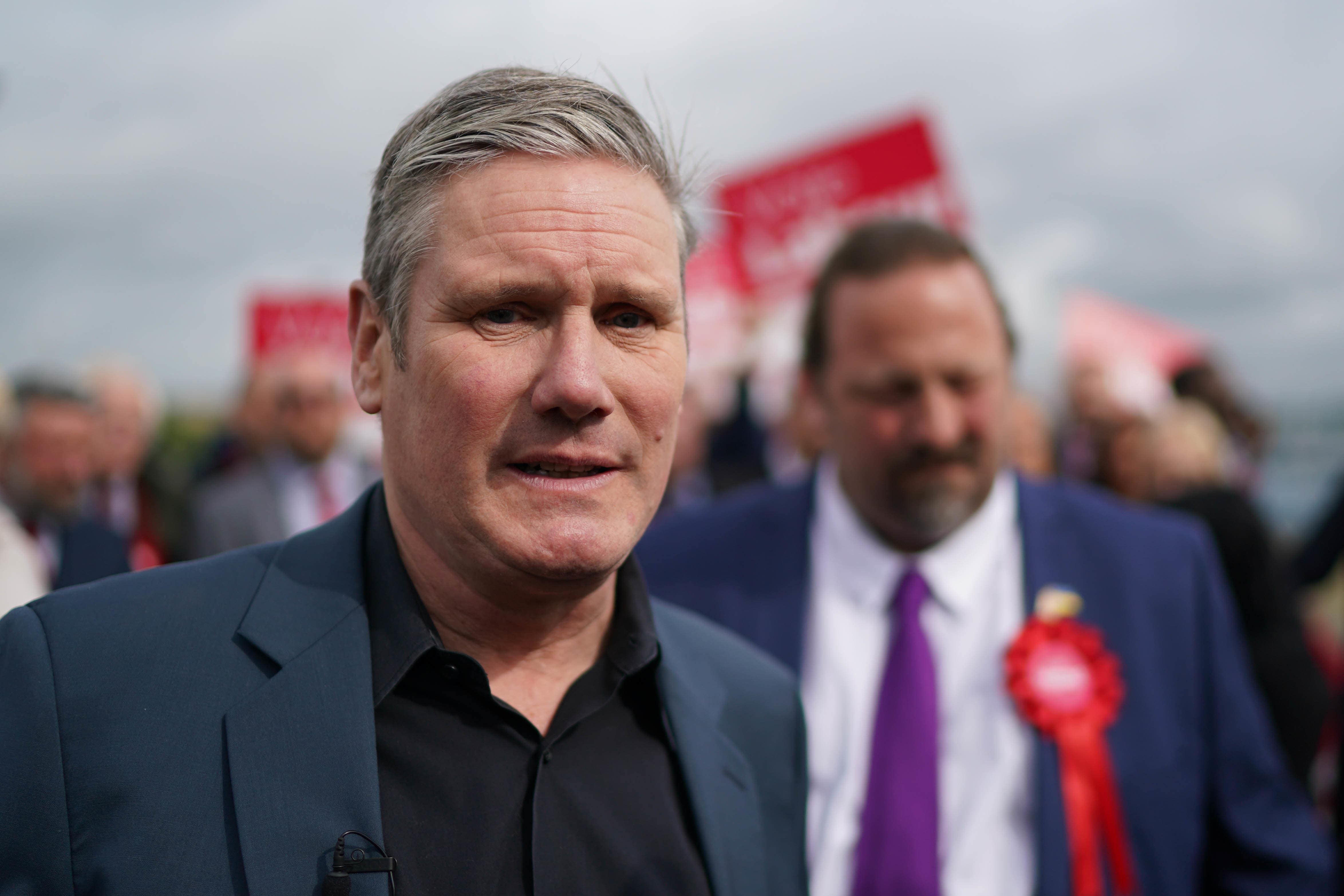Why Starmer is pushing a link to his election-winning Labour forebears
His latest speech may be somewhat vague and cliched but the Labour leader wants to make it clear he believes he can bring his party back to power, writes Sean O’Grady


Labour leader Keir Starmer is making a keynote speech to the centrist Progressive Britain Conference on Saturday, capitalising on his party’s recent success in the local elections and a solid lead in the opinion polls.
With enhanced personal authority as a result (albeit with relatively weak personal ratings), the speech is intended to show Labour on track to form the next government, having “won in all four corners of England”. The party’s media team are keen to stress Starmer’s pledge to “go deeper and further than New Labour”.
What does he mean?
It’s not entirely clear from this particular contribution, as much of the rhetoric is vague, if not cliched: “That’s why I say this project goes further and deeper than New Labour’s rewriting of Clause IV … This is about rolling our sleeves up, changing our entire culture – our DNA. This is Clause IV – on steroids.”
However, only a few weeks ago Starmer was much more explicit, and in particular about public sector reform, a task Tony Blair once said had left “scars” on his back. Starmer stated: “This will be a bold and reforming Labour government bringing about real change that I hope will be felt through the generations. I think we can go beyond what the Blair government did on public services … because I think there is unfinished business there.” He added: “We will be a reforming government ready to go from day one, further than Blair on public services, further than the Tories in the private sector.”
Is this New New Labour?
Yes and no. Blair’s reputation, especially on the Iraq war, remains sullied in some parts of the Labour Party even now – more than a quarter century since New Labour took office and some 16 years after Blair resigned as prime minister. Despite the undoubted successes of the Blair-Brown era, Starmer isn’t that keen on stirring up bad memories, so the invocations of Blair himself and of the New Labour project have been relatively muted.
That said, there does seem to be boldness about Starmer’s drift to the centre, as well as a rehabilitation of New Labour. This is all the more remarkable after the leftist enthusiasms of the Jeremy Corbyn era. This has been seen most notably in Starmer’s casual abandonment of some of the personal promises he made in his 2020 leadership campaign – ditching public ownership of the railways and keeping tuition fees for example. It’s also evident in the astonishing marginalisation of Corbyn himself, echoing some of the more brutal tactics employed by the Blairites in the 1990s.
While these moves have attracted claims from opponents on the left and right that Starmer cannot be trusted, they’ve caused little backlash among the wider public. If anything they might be seen as examples of pragmatism and a sign of strong leadership. The last two leaders to win elections for Labour, Harold Wilson and Blair were noted for their flexible approach to political problems, usually putting electoral calculus first.
Indeed, as he has before, Starmer is keen to link his efforts to capture Downing Street to all those of his illustrious forbears who took the party back into government after a long period of electoral failure – Clement Attlee in 1945, Wilson in 1964 and Blair in 1997. This is made explicit in this speech, which also carries a vague whiff of the modernising zeal of Wilson and Blair.
“We’ve got to navigate our way through revolutions in technology, in energy, in medicine and, with an ageing society, even in who we are. Climate change is a recipe for global instability. The global economy, the shape of power in the world, is changing. There is war on our continent. And then there’s the state of our country after 13 years of shambolic Tory government. If you think our job in 1997 was to rebuild a crumbling public realm, that in 1964 it was to modernise an economy overly dependent on the kindness of strangers, in 1945 to build a new Britain, in a volatile world, out of the trauma of collective sacrifice, in 2024 it will have to be all three.”
How about a progressive alliance with the Liberal Democrats?
Steady on. The two parties are maintaining a respectable difference, but both know that mutual anti-Tory tactical voting could be crucial in the next election. Therefore, attacks on one another are muted at most, and they will rarely be campaigning hard in each other’s best territories. The local elections and by-elections in this parliament point to a willingness by “progressive” voters to lend their support tactically to whichever party is best placed to unseat the Conservatives.
Starmer and Ed Davey also know that overturning the 2019 election requires historically large swings comparable to those in 1945 and 1997, and that they may have to find a way of working together if there’s a hung parliament. A coalition seems unlikely, but a less close “supply-and-confidence” deal could bring stability to the situation.
What about Brexit?
Not a mention, and there’s going to be no change there behind some piecemeal attempts to ease trade and travel. Even for the Europhile Lib Dems, reversing Brexit is now only an aspiration. They will not bring a minority Labour government down over Europe or proportional representation. Reversing Brexit would bring an immediate economic boost and provide funds to reform and improve public services – but it is not to be.
Join our commenting forum
Join thought-provoking conversations, follow other Independent readers and see their replies
Comments
Bookmark popover
Removed from bookmarks